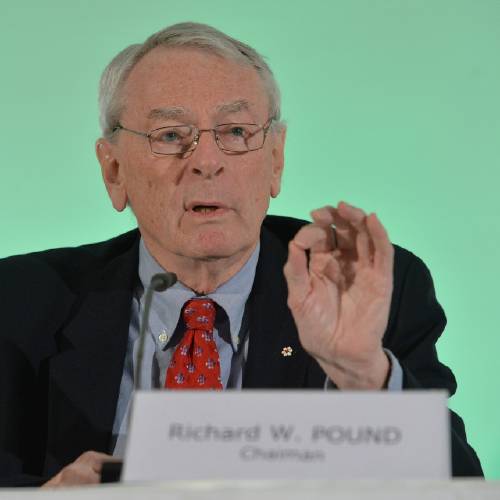-
Tips for becoming a good boxer - November 6, 2020
-
7 expert tips for making your hens night a memorable one - November 6, 2020
-
5 reasons to host your Christmas party on a cruise boat - November 6, 2020
-
What to do when you’re charged with a crime - November 6, 2020
-
Should you get one or multiple dogs? Here’s all you need to know - November 3, 2020
-
A Guide: How to Build Your Very Own Magic Mirror - February 14, 2019
-
Our Top Inspirational Baseball Stars - November 24, 2018
-
Five Tech Tools That Will Help You Turn Your Blog into a Business - November 24, 2018
-
How to Indulge on Vacation without Expanding Your Waist - November 9, 2018
-
5 Strategies for Businesses to Appeal to Today’s Increasingly Mobile-Crazed Customers - November 9, 2018
France issues wanted noticed for Diack’s son
“It is increasingly clear that far more IAAF staff knew about the problems than has now been acknowledged”, said the report, written by former WADA head Dick Pound.
Advertisement
Fallout from the independent commission’s probe continued on Thursday when the second half of Pound’s report revealed that the former head of world athletics, Lamine Diack, ran a clique that covered up organized doping and blackmailed athletes while senior officials looked the other way.
In addition, the WADA report also implicates the former IAAF deputy secretary general Nick Davies, who stood down in December after an email emerged suggesting that he was conspiring with Papa Massata Diack over delaying the announcement of Russian doping bans around the 2013 World Championships.
Publicly, Coe insists that he has had no thoughts about standing down and Pound said on Thursday that he “can’t think of anyone better” to lead the IAAF out of its crisis.
“There’s an enormous amount of reputational recovery that has to occur here and I can’t think of anyone doing better than Lord Coe to lead that”, he said.
Coe described Diack as his “spiritual leader”, only for the 82-year-old Senegalese to be arrested by French police over claims he took one million euros ($1.1 million) in bribes to cover up positive drug tests.
Current IAAF president Sebastian Coe was a vice-president during the corruption years involving Mr Diack. We’ve heard yesterday the president say there were no cover-ups.
Lamine Diack, the former president of the International Association of Athletics Federations (IAAF), was responsible for organising and enabling the conspiracy and corruption that took place in athletics’ governing body, according to WADA’s report.
The IAAF’s former anti-doping director Gabriel Dollé was given a five-year ban.
According to the report, the Russian television rights to broadcast the 2013 World Championships, held in Moscow, suddenly increased from $6 million to $25 million around the same time the IAAF was considering the cases of nine elite Russian athletes accused of doping.
Russian Federation remains suspended from global athletics following the revelations of the first part of the WADA commission report in November.
Massata Diack, Cisse and Dolle are also under investigation in France along with Lamine Diack, who has been barred from leaving the country.
Diack’s son, Papa Massata Diack, was last week banned for life by the IAAF’s ethics commission for blackmailing athletes, along with two high-ranking Russian officials.
“The corruption was embedded in the organization”.
The athletics chief, in a separate interview with Sky News, also denied knowledge of IAAF officials discussing Russian doping problems as early as 2009 and of internal IAAF notes obtained by the Associated Press proposing some Russian dopers be sanctioned while other, less well-known athletes be allowed to disappear from the sport unpunished. I have been, as the president of the IAAF, in total cooperation with all these enquiries.
Mr. Pound said given the concentration of power at the IAAF, the infrequency of meetings and the limited information council members received from the president, Mr. Coe’s claims that he didn’t know of the corruption were credible. “I have one objective now – to get this back into safe hands”.
Asked about possible wider corruption in selection of Tokyo for the 2020 Olympic Games, commission President Richard W. Pound said this did not seem plausible.
Advertisement
“My suspicion is that at some point there will be a similar investigation of Kenya”.




























